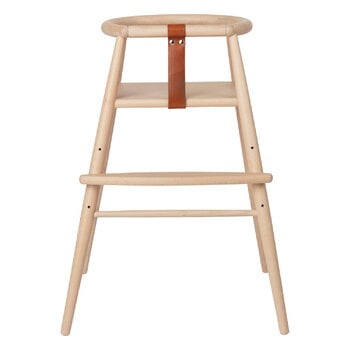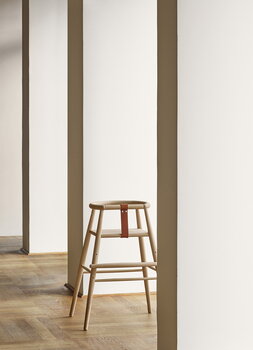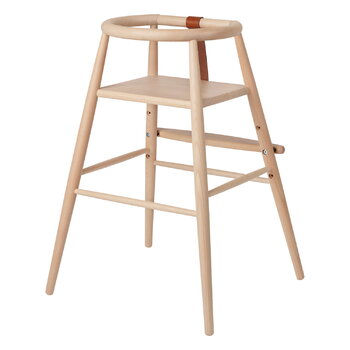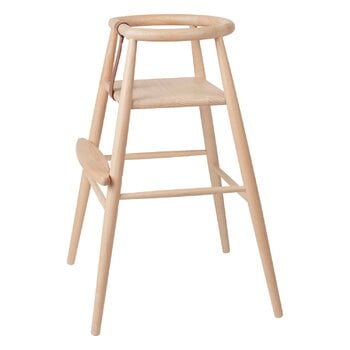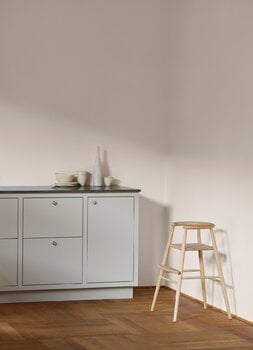Carl Hansen & Søn’s ND54 high chair, designed by Nanna Ditzel, charms with its minimalist and timeless design that still looks as fresh as it did when it was first released in 1955. Crafted from solid beech, the ND54 high chair has been treated with a non-toxic and easy-clean matte lacquer and perfected with a safety strap in leather. Thanks to the removable front bar and safety strap, the chair can be adapted as the child grows.
The ND54 high chair is designed for children who are able to sit up unaided, up to 3 years or a maximum of 15 kg. A separate baby backrest can be purchased separately to make the chair suitable for smaller children. The high chair comes with three stainless steel nameplates that can be engraved with the names of the children who have used it – this way, memories can be passed down through the generations.
